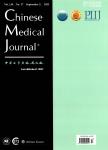Treatment of allergic airway inflammation and hyperrespon-siveness by imiquimod modulating transcription factors T-bet and GATA-3
Treatment of allergic airway inflammation and hyperrespon-siveness by imiquimod modulating transcription factors T-bet and GATA-3作者机构:Department of Respiratory Medicine First Affiliated Hospital of Nanjing Medical University Nanjing 210029 China
出 版 物:《Chinese Medical Journal》 (中华医学杂志(英文版))
年 卷 期:2006年第119卷第8期
页 面:640-648页
核心收录:
学科分类:1002[医学-临床医学] 100201[医学-内科学(含:心血管病、血液病、呼吸系病、消化系病、内分泌与代谢病、肾病、风湿病、传染病)] 10[医学]
主 题:asthma T-bet GATA-3 imiquimod
摘 要:Background Imiquimod is an imidazoquinoline, which class of compounds are known to have antiviral and antitumoural properties. In recent studies, it was shown that imiquimod modulates the T helper cell type Th1/Th2 response by inducing the production of Thl cytokines like IFN-γ, and by inhibiting the Th2 cytokines like interleukin (IL)-4. Several investigators have shown that T-bet and GATA-3 are master Thl and Th2 regulatory transcription factors. This study investigated whether irniquimod treatment inhibited airway inflammation by modulating transcription factors T-bet and GATA-3. Methods Thirty-six male SD rats were randomly divided into a control group, an asthmatic group, and an imiquimod group, which was exposed to an aerosol of 0.15% imiquimod. Twenty-four hours after the last ovalbumin (OVA) challenge, airway responsiveness was measured and changes in airway histology were observed. The concentrations of IL-4, IL-5 and IFN-γ in bronchoalveolar lavage fluid (BALF) and serum were measured by enzyme linked immunosorbent assay (ELISA). The rnRNA expressions of IL-4, IL-5, IFN-γ, T-bet and GATA-3 in lung and in CD4^+ T cells were determined by reverse transcription polymerase chain reaction (RT-PCR). The protein expressions ofT-bet and GATA-3 were measured by Western blot. Results It was demonstrated that imiquimod 1) attenuated OVA induced airway inflammation; 2) diminished the degree of airway hyperresponsiveness (AHR); 3) decreased the Th2 type cytokines and increased Thl type cytokines mRNA and protein levels; 4) modulated the Th1/Th2 reaction by inhibiting GATA-3 production and increasing T-bet production. Conclusion Imiquimod treatment inhibits OVA induced airway inflammation by modulating key master switches GATA-3 and T-bet that result in committing T helper cells to a Thl phenotype.



